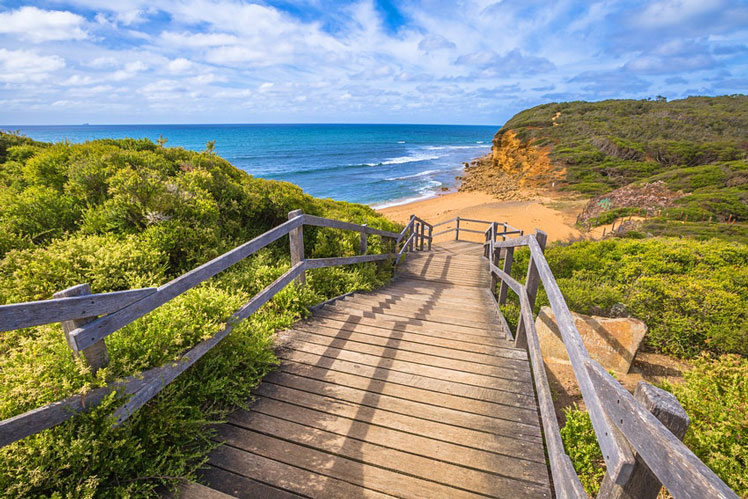
When is the best time to go to Australia?
TripFalcon March 15, 2021
Last Update: 2022-11-20 04:21:58Australia is enormous, and picking the right time for your visit depends on where exactly you're trying to go – a tropical north is at odds with a temperate south, and the central desert is its own consideration. This month-by-month breakdown will help you discover the best time for your vacation, no matter where you're headed.
High season: December to February
Best time for beach bums and festival lovers
Summer in Australia may be a time of environmental extremes – wet season arrives up north and bush fires spark in the south – but it's the ideal time for lounging on one of the country's famed beaches or enjoying its many arts, food and music festivals.
Visitors should come prepared for higher prices and some crowding in major tourist centers and popular beaches. Don't forget to pack your sunscreen!
Shoulder season: March to May & September to November
Best time for cross-country travel
Transition seasons bring warm sun, clear skies and cool nights, making them your best bet if you're trying to hop all around the country. Australia's hot center will be experiencing a slight reprieve from summer's heat and the coastal areas generally will still be warm enough to enjoy (though bring a jacket just in case!).
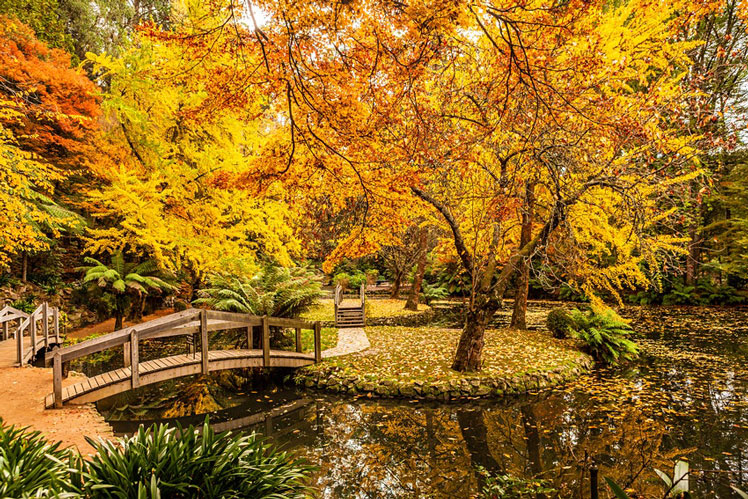
Visit Australia during autumn shoulder season for stunning fall colors ©Tsvi Braverman / EyeEm / Getty Images
The coasts can be busy around Easter, and the autumn colors are particularly atmospheric in Victoria, Tasmania and South Australia.
Low season: June to August
Best time for budget travel
Australian winter brings cool days down south and milder weather with sunny skies up north – now's your best chance for pleasant desert and tropical travel and whale watching.
Tourist numbers are at their lowest and so are prices, but keep in mind that some attractions may keep slightly shorter hours.
Month-by-month breakdown
Here's a guide to what you can expect to do and see in Australia throughout the year. All events are subject to change.
January
January yawns into action as the country recovers from its collective New Year hangover, and festival season kicks off in earnest.
Key events: Sydney Festival, Australian Open, Midsumma Festival, MOMA FONA, Tamworth Country Music Festival.
February
February is usually Australia's hottest month – it'll be humid and sticky up north as the wet season continues, and it's often baking hot in South Australia and Victoria. Locals return to school and work while the sun shines on.
Key events: Adelaide Fringe, Perth Festival, Trop Fest, Brisbane Street Art Festival.
March
Oenophiles delight: March is harvest time in Australia's vineyards. In recent years March has been hot, despite its autumnal status.
Key events: WOMADelaide, Australian F1 Grand Prix, Port Fairy Folk Festival, Adelaide Festival, 10 Days on the Island.
April
Melbourne and the Adelaide Hills are atmospheric as European trees turn golden, then maroon. Up north the rain is abating and the desert temperatures are becoming manageable.
Key events: Byron Bay Bluesfest, Barossa Vintage Festival, Tjungu Festival.
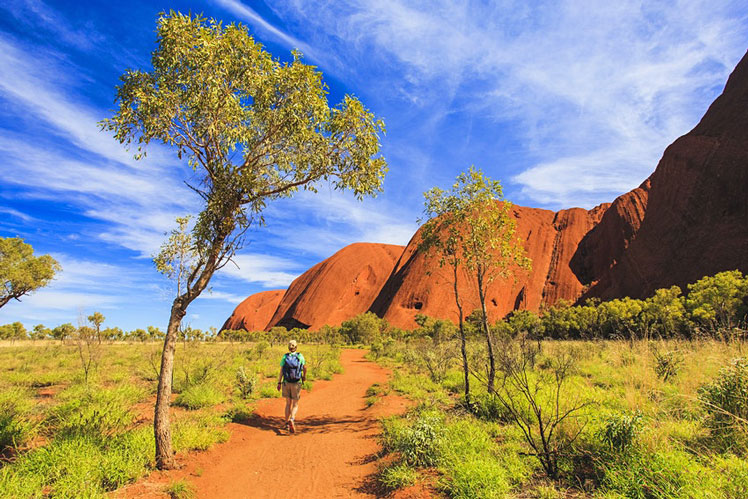
May is a great month to visit the unforgettable Uluru-Kata Tjuta National Park ©Tetra Images / Shutterstock
May
The dry season begins in the Northern Territory, northern Western Australia and Far North Queensland, bringing much relief from the humidity. It's also a great time of the year to visit Uluru-Kata Tjuta National Park.
Key events: Ord Valley Muster, Noosa Eat & Drink, Uluru Camel Cup.
June
Winter begins: snow falls across the southern Alps ski resorts and football season fills grandstands across the country. It is peak season in the tropical north, and waterfalls and outback tracks are accessible (though accommodation prices less so).
Key events: Laura Aboriginal Dance Festival, Barunga Festival, Sea & Vines Festival, Vivid Sydney, Bellingen Readers & Writers Festival.
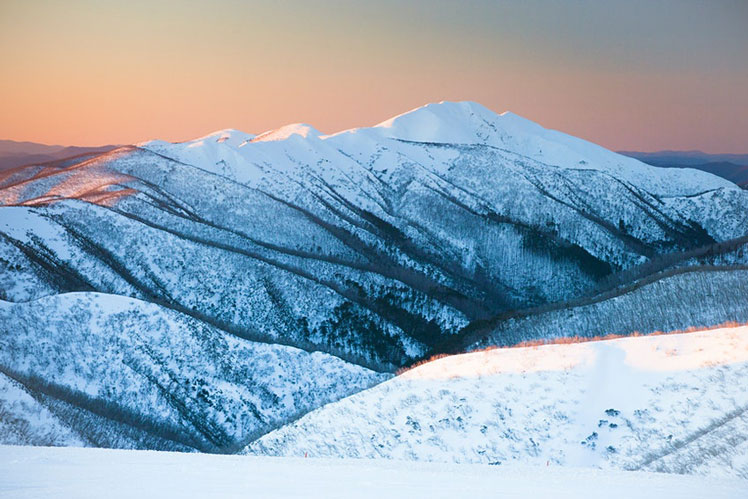
Australian winter brings snow to its alpine regions © FiledIMAGE / Shutterstock
July
You'll find pubs with open fires, cozy coffee shops and empty beaches down south, and, oppositely, packed markets, tours and accommodation up north. Make sure to bring warm clothes for anywhere south of Alice Springs.
Key events: Melbourne International Film Festival, Derby Boab Festival, Walking with Spirits, Noosa Alive, Alice Springs Camel Cup, Splendour in the Grass, Cairns Indigenous Art Fair, Mackay Festival of Arts.
August
August is when southerners, sick of winter's grey-sky drear, head to Queensland for some sun. It's almost the last chance to head to the tropical Top End and outback before things get too hot and wet.
Key events: Cairns Festival, Garma Festival, Henly-on-Todd Regatta, Melbourne Winter Festival, Arlie Beach Race Week.
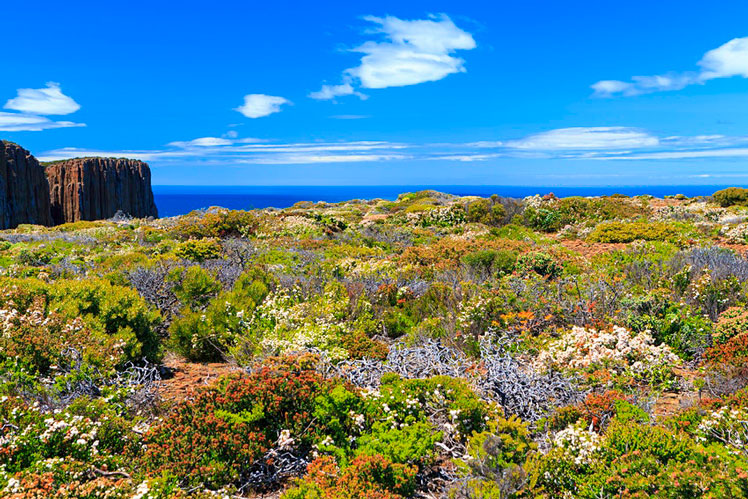
In September wildflowers explode across southern Australia © Catherine Sutherland / Lonely Planet
September
Spring heralds a rampant bloom of wildflowers across outback Western Australia and South Australia, with flower festivals happening in places like Canberra and Toowoomba. Football finishes and the Spring Racing Carnival begins.
Key events: AFL Grand Final, Brisbane Festival, Shinju Masuri Festival of the Pearl, Perth Wildflower Festival, Pilbara Red Earth Arts Festival, Floriade, Alice Desert Festival, Bigsound Festival.
October
The weather avoids extremes everywhere, so it's a good time to go camping or to hang out at some vineyards. The build-up to the rains begins in the Top End – very humid.
Key events: Melbourne Festival, Riverland Wine & Food Festival, Caloundra Music Festival.
November
Northern beaches may close due to "stingers" – jellyfish in the shallow waters off north Queensland, the Northern Territory and Western Australia. Outdoor events ramp up and the surf life-saving season flexes its muscles on beaches everywhere.
Key events: Gourmet Escape, Melbourne Cup, Sculpture by the Sea, Wangaratta Jazz & Blues, Fremantle Festival.
December
Ring the bell, school's out! Holidays usually begin a week or two before Christmas. Cities are packed with shoppers and the weather is desirably toasty. Up north, monsoon season is under way and afternoon thunderstorms bring pelting rain.
Key events: Sydney to Hobart Yacht Race, Woodford Folk Festival, Sydney Harbour Fireworks.

